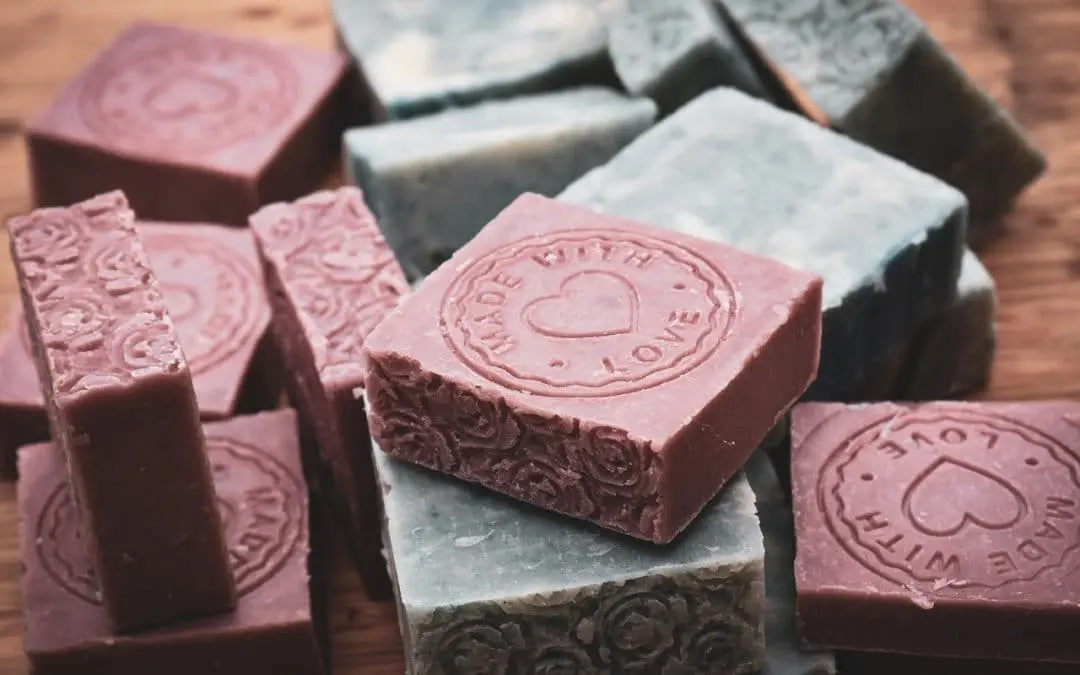Catching your dog eating something they shouldn’t can be scary, especially when it’s a household item like soap. If you’re unsure what to do if your dog eats soap, acting quickly is key. Some soaps contain toxic ingredients that can lead to vomiting, diarrhea, or even damage to your dog’s mouth and stomach. In this article, we’ll walk you through what to do if your dog eats soap, what symptoms to watch for, and how to help prevent an emergency vet visit.
What to Do if Your Dog Eats Soap
Step 1 – Take the Soap Away from Your Dog
When you see your dog doing something that could potentially cause him harm, a firm “no” is necessary. Make sure he hears and acknowledges the “no,” and remove the soap from his mouth right away.
If your dog is lapping up spilled liquid soap, lead him away from the puddle. Cover the puddle with a towel so he can’t get any more. If your dog has gotten a bar of soap, remove it from his mouth.
Once you’re confident your dog can no longer access the soap, gently pry open his mouth. Check for any remnants and remove them immediately. NEVER INDUCE VOMITING.
Step 2 – Call Your Veterinarian
As soon as the soap is gone, don’t waste any more time: call your vet. They know your dog, and they are the best judge of what to do when her health is jeopardized. If the vet is not readily available, contact the ASPCA’s emergency hotline.
Step 3 – Identify the Type of Soap
This will be the first question your vet, or the poison control hotline operator, will ask. Be mindful that your dog’s reaction to the soap depends on the type of soap.
Most soap contains chemicals that are poisonous for dogs. For example, glycerin, a common ingredient in soaps, is known to cause severe gastrointestinal damage in dogs. Essential oils can also be extremely toxic. Lavender, pine oil, and wintergreen can even be deadly. While there are all-natural soaps that may not cause your dog harm, you can’t take any chances. No soap is designed for dogs to eat, so it presents an automatic cause for concern.
Step 4 – Understand Why It Happened
In general, dogs don’t want to eat soap. Most soap has a strong odor that smells nothing like the food dogs enjoy. Some soap contains fats and oils that might attract your dog on a visceral level. But the average dog will not find the taste of soap appealing.
Puppies are most likely to eat soap or other harmful items. Like human babies, their gums are sensitive, and they yearn to explore the world via their mouths. They also lack the awareness that older dogs have when it comes to what is safe to eat.
If your dog is older, there is no healthy reason that he’d want to eat soap. Be on the lookout for symptoms of pica, a condition which causes dogs to crave non-edible objects.
Common Reasons Dogs Eat Soap
Dogs might eat soap out of curiosity, boredom, or by accident, especially if it has a scent that reminds them of food. Puppies, in particular, explore the world with their mouths and may chew on unfamiliar objects like soap during teething. In some cases, soap-eating can be a sign of a behavioral condition called pica, which causes dogs to crave and consume non-food items. If your dog repeatedly tries to eat soap or other inedible objects, it’s a good idea to talk to your vet.
How to Prevent Your Dog from Eating Soap
Dogs eating soap is a dangerous scenario, but it’s also a very preventable one. Follow these rules to keep soap away from your dog:
- Only buy pet-safe brands. As we said earlier, all-natural soaps do exist and don’t pose as much of a threat when dogs eat them. If you have a puppy or a dog with pica, buying safe products is your best option.
- Keep soap on a shelf. Dogs should never have immediate access to toxic products like soap. Keep all bars of soap and liquid detergents far away from your dog.
Emergency Vet Clinic in Gilbert, AZ
Even if your dog seems fine after ingesting soap, it’s important not to take any chances. Understanding what to do if your dog eats soap can help you act quickly and avoid a potentially serious health emergency. From removing access to the soap to calling your veterinarian right away, your fast response can make all the difference.
If your dog eats soap, call East Valley Animal Hospital at (480) 892-1577. Our emergency veterinary team in Gilbert is here to help keep your pet safe, healthy, and on the road to recovery.
Images used under creative commons licence – commercial use (4/14/21). Image by on Didier on Pixabay.

